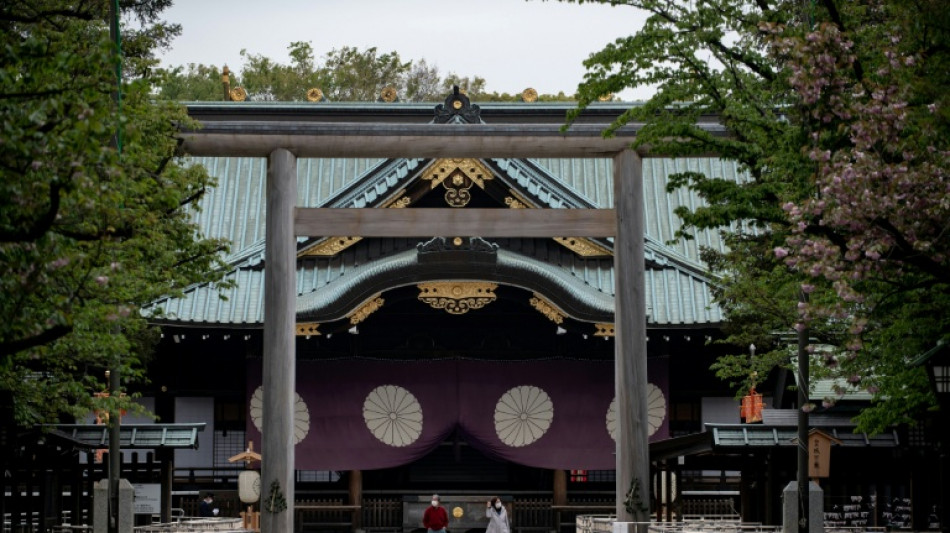
Japan's Takaichi avoids war shrine visit as prospects of becoming PM brighten

The new head of Japan's ruling party, Sanae Takaichi, sent an offering but avoided visiting a controversial war shrine on Friday, as the prospects of her becoming prime minister brightened.
Takaichi became Liberal Democratic Party (LDP) leader on October 4 but her bid to be Japan's first woman premier was derailed by the collapse of her ruling coalition last week.
However, the LDP is now in talks about forming a different alliance, putting her chances of becoming premier in a parliamentary vote expected on Tuesday back on track.
Past visits by top leaders to the Yasukuni shrine in Tokyo, which honours Japan's war dead, including convicted war criminals, have angered China and South Korea.
Takaichi, seen as an arch-conservative and China hawk from the right of the LDP, has visited the shrine in the past, including when she was a government minister.
The 64-year-old this time sent an offering but did not make an appearance on the opening day of an autumn festival on Friday.
Reports said she would stay away in order not to upset Japan's neighbours.
China's foreign ministry urged Japan on Friday to "confront and reflect on its history of aggression, exercise caution in its words and actions on historical issues such as the Yasukuni Shrine".
- Trump visit -
The clock is ticking for Takaichi to become Japan's fifth prime minister in as many years, with US President Donald Trump due to visit at the end of October.
Details of a trade deal between Washington and Tokyo remain unresolved, and Trump also wants Japan to stop Russian energy imports and boost defence spending.
The Komeito party, the LDP's coalition partner of 26 years, pulled out of their alliance on October 10.
Komeito said the LDP had failed to tighten party funding rules following a damaging slush fund scandal involving dodgy payments of millions of dollars.
The LDP began talks this week on forming a new coalition with the Japan Innovation Party (JIP) instead.
The two parties would still be two seats short of a majority, although the alliance would likely ensure that Takaichi succeeds in becoming premier.
That is because, while Takaichi needs support from a majority of MPs, she only needs more than the other person in a two-way second-round runoff.
A potential spanner in the works could come if opposition parties agree on a rival candidate, but talks this week on such an outcome have appeared to make little headway.
JIP co-head Fumitake Fujita hailed "big progress" after the latest round of discussions with the LDP on Friday.
"Going forward, we will make final adjustments in terms of the wording and interpretation" of policies, he said.
Fujita also ruled out working with other opposition parties to find an alternative candidate to Takaichi.
Mikitaka Masuyama, a professor at the National Graduate Institute for Policy Studies, said: "If the LDP and the JIP agree to form a coalition, Takaichi will become the new prime minister."
However, he cautioned that, like in recent elections, support for the LDP might continue to slide.
"The LDP under Takaichi may not be popular with a range of voters on the right and left that former LDP leaders Junichiro Koizumi and Shinzo Abe had enjoyed," Masuyama told AFP.
"Or, her government may regain support from conservatives who left the LDP for other conservative opposition parties," he said.
kh-tmo-aph-stu/pbt
Y.Ko--SG

 London
London

 Manchester
Manchester
 Glasgow
Glasgow
 Dublin
Dublin
 Belfast
Belfast
 Washington
Washington
 Denver
Denver
 Atlanta
Atlanta
 Dallas
Dallas
 Houston Texas
Houston Texas
 New Orleans
New Orleans
 El Paso
El Paso
 Phoenix
Phoenix
 Los Angeles
Los Angeles



